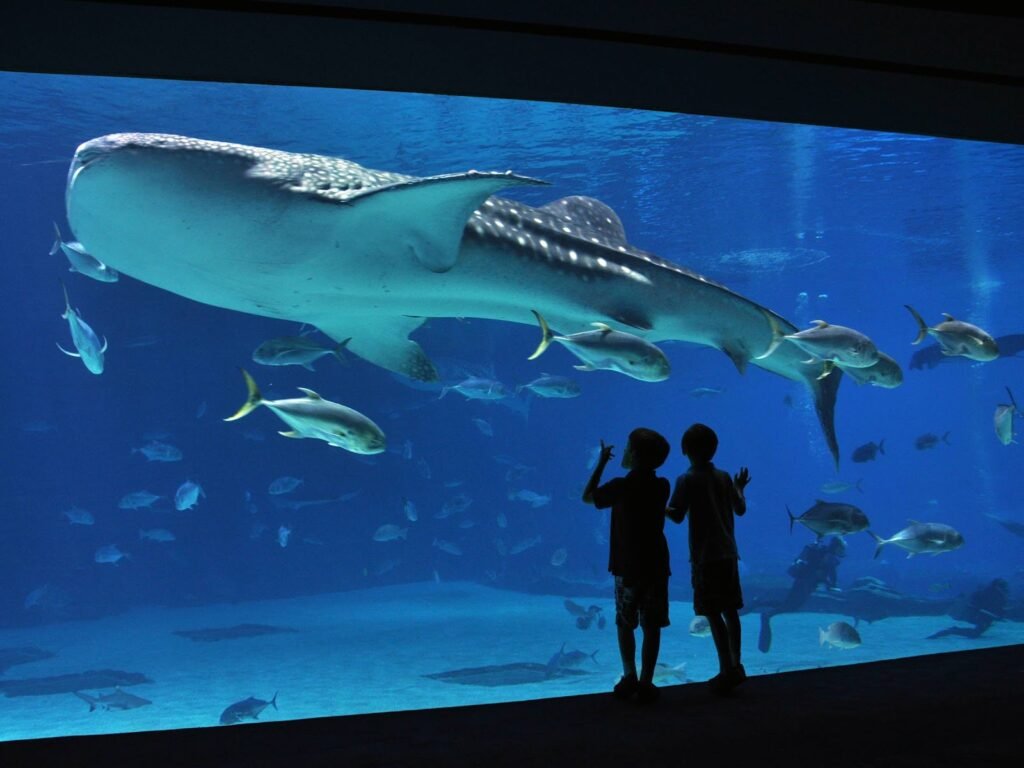The captivity of animals in aquariums and zoos has long been a contentious issue, drawing criticism from animal welfare advocates, scientists, and the general public alike. This extensive expose delves into the core reasons why keeping animals in captivity is considered problematic and explores potential alternatives for promoting animal welfare.
1. Lack of Space
One of the most significant concerns regarding animal captivity is the stark contrast between the limited space provided by captive facilities and the expansive natural habitats animals are accustomed to. Wild animals, particularly marine mammals like dolphins and whales, thrive in vast environments where they can roam, explore, and exhibit natural behaviors. Captive environments, regardless of their size, are minuscule in comparison. The confinement restricts their movement and limits their ability to engage in complex social interactions and behaviors that are crucial to their well-being.
For example, orcas in captivity are often kept in tanks that are mere fractions of the size of their natural ocean habitats. These confined spaces not only stifle their physical activity but also deny them the mental stimulation that comes from a dynamic and diverse environment.
2. Stress and Health Problems
The psychological and physical stress experienced by animals in captivity is another critical issue. Captive animals frequently develop abnormal behaviors, such as pacing, self-mutilation, and aggression, which are indicative of severe stress and mental distress. Studies have shown that these behaviors are not observed in wild populations, suggesting that captivity plays a significant role in their development.
Health problems are also prevalent in captive animals. Conditions like ulcers, weakened immune systems, and high rates of mortality are common. For instance, captive dolphins have been known to suffer from chronic infections, skin lesions, and even tumors. The inability to engage in natural behaviors exacerbates these issues, leading to a compromised quality of life.
3. Separation from Family
In the wild, many animals, particularly marine mammals, live in complex social structures and maintain strong family bonds. Captivity often disrupts these familial connections, with animals being separated from their families and social groups. This separation can lead to a range of psychological issues, including depression and behavioral disorders.
For instance, orcas and dolphins exhibit sophisticated social interactions and familial bonds that are crucial to their well-being. The disruption of these bonds in captivity can lead to significant emotional distress and behavioral abnormalities.
4. Lack of Control
Animals in captivity are deprived of the ability to control their surroundings, a fundamental aspect of their natural behavior. In the wild, animals can choose their activities, navigate their environment, and avoid potential threats. Captivity restricts these choices, leading to frustration and stress.
This lack of control is evident in the behavior of captive animals, who often display signs of boredom and frustration. For example, dolphins in captivity are often seen performing repetitive and unnatural behaviors, a sign of their inability to engage in self-directed activities.
5. Profit Over Welfare
A troubling aspect of many captive facilities is their focus on profitability rather than animal welfare. Exhibits and attractions are often designed to maximize visitor appeal and revenue, sometimes at the expense of the animals’ needs. This focus on profit can lead to inadequate living conditions, poor health care, and insufficient enrichment for the animals.
The commercialization of animal exhibits can also perpetuate a cycle of exploitation, where the primary goal is to attract visitors rather than to provide meaningful and enriching experiences for the animals. This approach raises ethical concerns about the prioritization of financial gain over the well-being of the animals.
6. Outdated Entertainment
The practice of keeping animals in captivity for entertainment purposes is increasingly viewed as outdated and unnecessary. With growing awareness of animal sentience and the ethical implications of captivity, many argue that society should move away from using animals for spectacle and focus on more humane and educational alternatives.
Advancements in technology and education offer opportunities to learn about animals without exploiting them. Documentaries, virtual reality experiences, and interactive educational programs can provide valuable insights into animal behavior and conservation without subjecting animals to captivity.
Supporting Alternatives to Captivity
For those concerned about animal welfare, there are several ways to support alternatives to captivity:
- Visit Animal Sanctuaries: Animal sanctuaries provide a more natural and supportive environment for animals that cannot be returned to the wild. Unlike traditional zoos and marine parks, sanctuaries prioritize the well-being and rehabilitation of animals.
- Boycott Cruelty: Avoid supporting businesses and attractions that profit from the exploitation of animals. This includes not only zoos and aquariums but also circuses and other entertainment venues that use animals for spectacle.
- Advocate for Change: Write letters to local newspapers, post on social media, and engage in public discourse to raise awareness about the issues surrounding animal captivity. Advocating for animal-friendly legislation and policies can also drive systemic change.
- Support Legislation: Encourage lawmakers to support legislation that promotes animal welfare and protects wildlife. This includes laws that ban or restrict the captivity of wild animals and support conservation efforts.
The ethical issues surrounding animal captivity in aquariums and zoos are multifaceted and deeply concerning. From inadequate space and health problems to the prioritization of profit over welfare, the challenges faced by captive animals highlight the need for a shift towards more humane and sustainable practices. By supporting animal sanctuaries, boycotting exploitative businesses, and advocating for legislative change, individuals can contribute to a more ethical approach to animal welfare and conservation. As society evolves, so too should our understanding and treatment of the animals with whom we share our planet.


